Newsletter
Sign up for The Wild
We’ll help you find the best places to hike, bike and run, as well as the perfect silent spots for meditation and yoga.
You may occasionally receive promotional content from the Los Angeles Times.
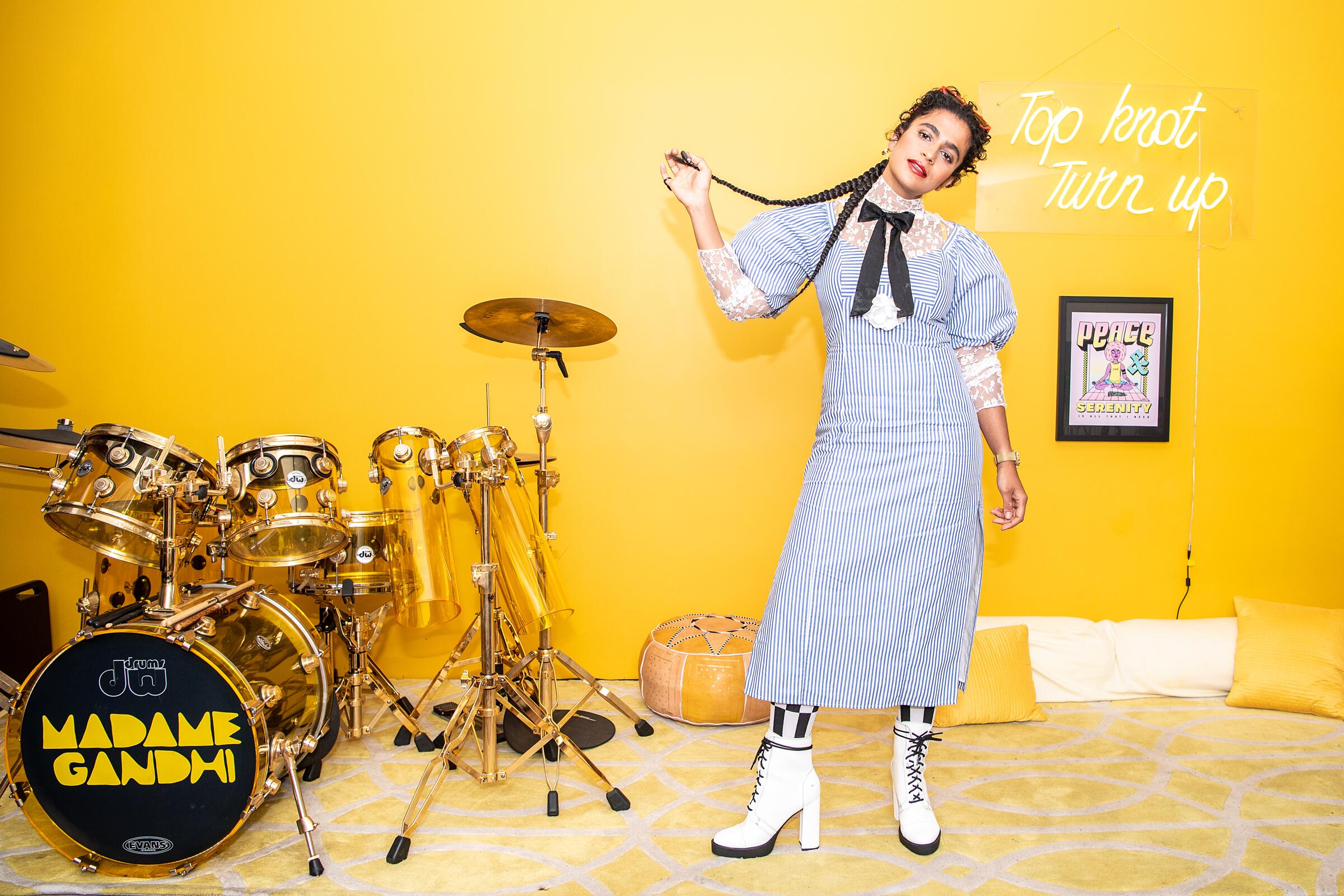
Madame Gandhi was spending another L.A. morning at Soho Warehouse, a short walk from her Arts District loft and something of a de facto office for her during the COVID-19 pandemic.
“Thank God for this place,” she said about the downtown private social club. “The people here are like, ‘Dude, you come here a lot!’ But I’m here with my laptop, getting my work done, getting people what they need. I want to be a high-functioning individual. That’s the model South Asian child in me.”
The musician and activist — her given name is Kiran Gandhi — is self-deprecating about all the ways, technically, she’s the perfect daughter to her accomplished and educated Indian parents. She went to private schools in New York, was a mathematics and women’s studies major at Georgetown University and landed a first job as a data analyst. She also received an MBA from Harvard in 2015.
What her parents didn’t know, however, was that while Gandhi was working toward that master’s degree, she was also flying off to Poland and Japan on weekends to play drums on tour with rapper M.I.A.
“I’d be in class till Friday, fly to Osaka on Saturday, land back at Logan at 6 a.m. on Monday and go straight to class,” she said of her travels to and from the Boston airport during 2013. “I didn’t tell my parents about it till later. Even with my own queerness, I had to go through a lot of things before being vulnerable and open about my own sexuality and being attracted to multiple genders. But I can say to them now, ‘I’ve gone to Harvard. I’ve given a TED Talk. I’m a legit successful person in the world you can be proud of and I’m a musician. And I’m queer and I’m free.’”
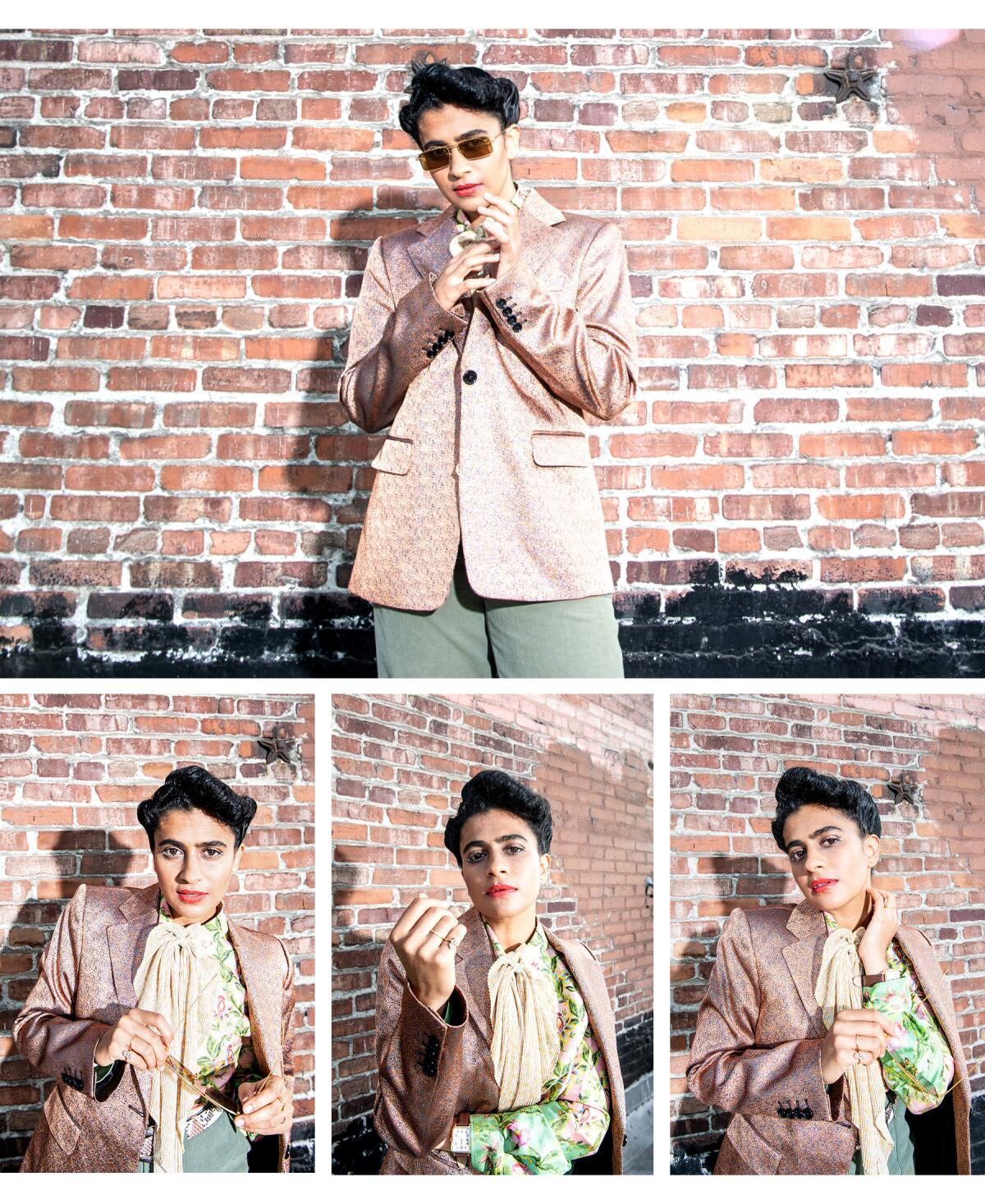
Gandhi, 31, is working on her third album, “Vibrations,” under her new record deal with Sony Masterworks. Her music has a richly percussive drumbeat, a multitude of cultural influences and optimistic lyrics.
“I love music that is about joy and positivity and being present, and beats that are hypnotic and pull the energy into my bubble,” she said. “When someone is drumming and they stop, I instantly miss it. Things feel silent. I think the best drumming is that hypnotic, consistent kind, a bed of sound that pulls you in.”
Drew Thurlow, senior vice president of A&R at Sony Masterworks, described Gandhi as a “force of nature.”
“She knows who she is and what she wants to say, and as a pure drummer and beat maker, she’s off-the-charts talented,” he said. “Her whole overarching goal is to serve the song. She’s an optimist. She’s trying to bring positivity and to uplift her audience, with a really important dose of activism.”
Her videos for singles such as “Young Indian,” a remix of which was released in early October, and 2018’s “Bad Habits,” are replete with blazing colors like yellow and orange, an ode to her first name, which is Hindi for “ray of light.”
“My grandmother used to dress me in yellow so I could step into my name,” she said. (Although on this one particularly overcast October morning, she was in sage green linen, which coincidentally paired with the matcha latte she ordered. “I was feeling the green today,” she said. “It’s the heart-chakra-energy color.”)
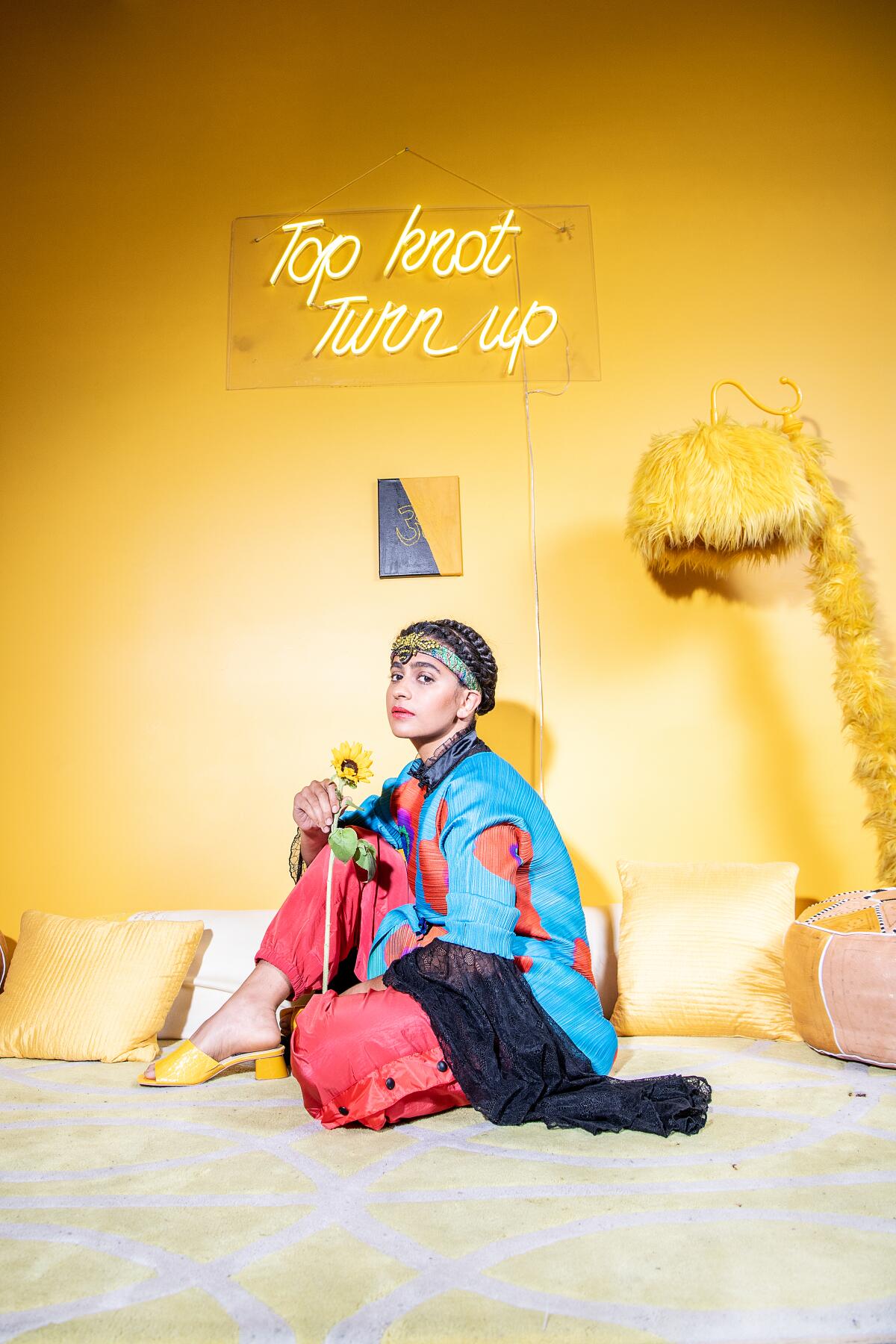
Her merchandise line has her imprint all over it too. Masks are embroidered with the phrase “Own Your Voice.” She did a collaboration with hip Indian-Canadian fashion brand Nor Black Nor White of custom-dyed silk dresses, oversized shirts and jumpsuits in sunset colors. She seeks out hidden style treasures. Sometimes while walking around the neighborhood, for instance, she will stop at Departamento, an L.A. store she describes as a “clothing speakeasy,” tucked away at the end of a mirrored tunnel behind a coffee shop. Gandhi describes her personal style as “fluid, ranging from tomboy to super feminine.”
She also likes to give things away. Therefore, every time she acquires something new she makes room for it by giving an item of clothing or a pair of sneakers to a friend or stranger.
These days, however, it’s not just music and fashion on Gandhi’s mind. Once a week she’s joined a group of fellow activists outside the office of L.A. County Dist. Atty. Jackie Lacey, who was up for reelection Tuesday and who recently was sued by Black Lives Matter organizers, alongside husband David Lacey, who is accused of waving a gun at demonstrators in March. (On Friday, Lacey conceded to her opponent, George Gascón.)
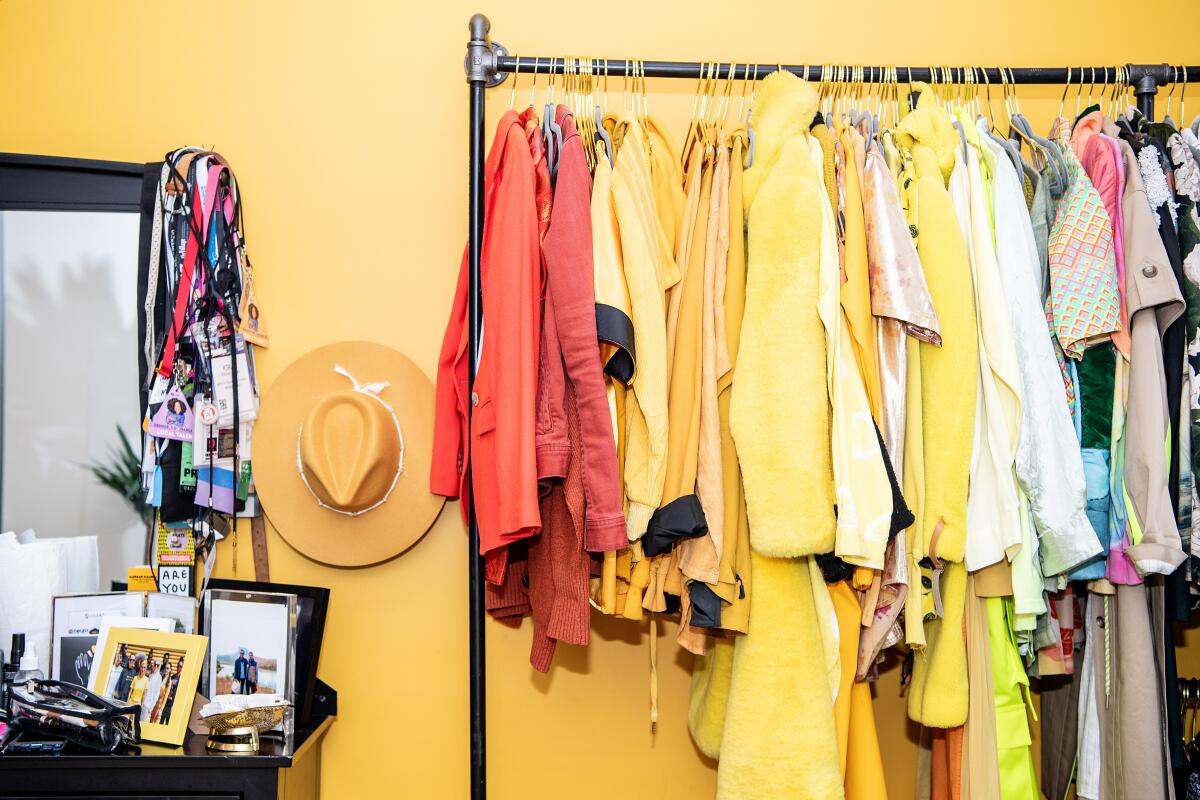
“She’s notorious for overly incarcerating Black folks,” Gandhi said of Lacey. “We gather to show that we’re actively focused on this issue.”
She is equally fired up over other issues being determined this election cycle. Gandhi has been a vocal supporter of Measure J, which was approved in Tuesday’s election; it requires that 10% of L.A. County’s general funds go toward community programs and alternatives to incarceration.
“With Measure J, L.A. has a real opportunity to be a leader to the rest of the country,” she said. “It’s about investing money directly into vulnerable communities where folks are overly incarcerated. It can go toward mental health, job creation, micro grants and micro loans. If it works, fewer folks will go to prison, and that’s what we want. That’s the good side of the street.”
The grandson of the chain’s founders hopes to leverage brand nostalgia into a full-blown apparel line.
Gandhi also aligned with L.A.-based Give a Beat, an organization that promotes music education among incarcerated populations. Before the pandemic she was a regular in a series at Central Juvenile Hall, a youth detention center, where she would teach beat-making and DJing to teens between the ages of 14 and 18.
“It’s the most magical, beautiful, important hour,” she said. “If you invest in those kids, they grow into that. They just need to know that something is possible. If they grow up in a situation where all they see is violence, danger and a lack of opportunity, then that is their reality.”
Lauren Segal, cofounder and director of Give a Beat, which is offering its programming remotely inside California state prisons during the pandemic, said Gandhi’s easy, approachable manner is “disarming.”
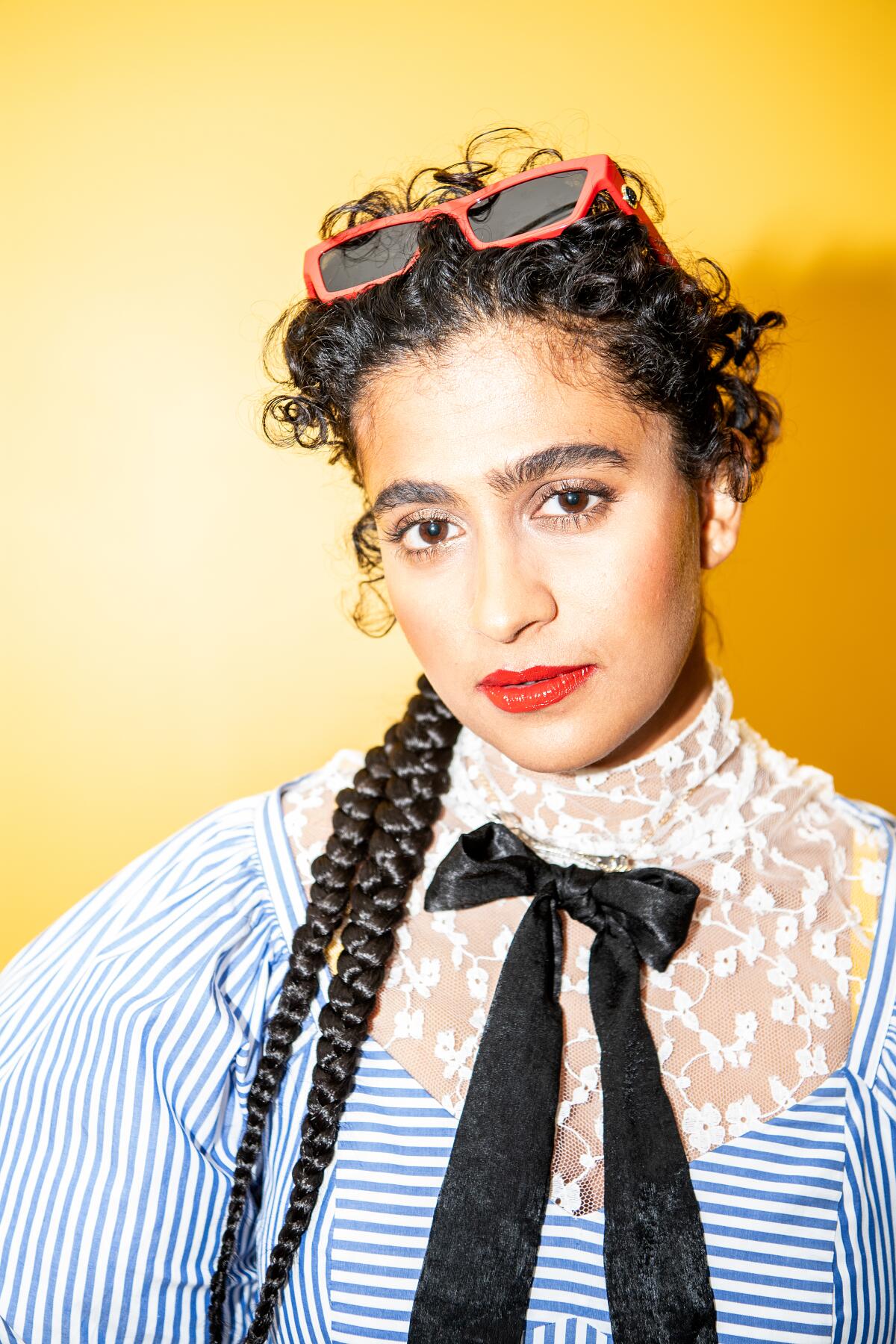
“Immediately, the tension in the room is gone. She sets up the equipment and then engages kids to come up and get on it,” Segal said. “She makes them feel talented and seen and heard. Kiran comes in, and she’s all realness and warmth. She’s an amazing combination of a woman who is strong but still feminine. And the kids really respond to it.” (Early next year the organization will launch its reentry mentoring program, On a New Track, which will train eight previously incarcerated people in skills such as music production and being a DJ.)
Despite a privileged upbringing, Gandhi displays a singular ability to connect to a wide swath of people. She was born in Boston where her parents attended graduate school and moved to New York with her family at 6 months old. Her father, Vikram S. Gandhi, went into investment banking — he’s now a professor at Harvard Business School. Her mother, Meera Gandhi, became a philanthropist, founding a charitable organization called the Giving Back Foundation. As a young girl, Gandhi spent hours listening to the radio, memorizing songs by Tracy Chapman, the Spice Girls and Natalie Imbruglia and asking her dad to stop at Tower Records on his way home to buy CDs.
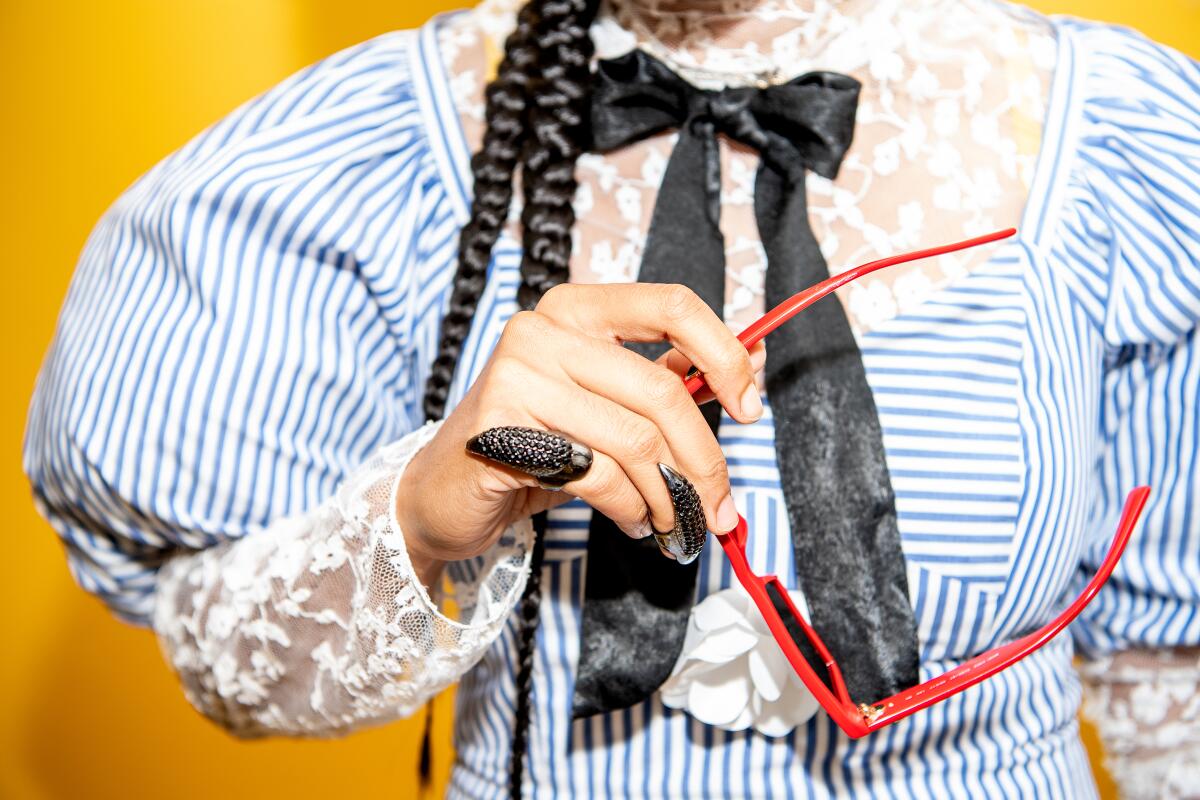
“I’d see the bag in his hands from Tower or HMV and I’d get so excited,” she said. “On the school bus, the driver would play classical music in front of the parents, but as soon as we drove off, he would turn it back to the hip-hop station.” When she was 8, Gandhi, her parents and her two younger siblings relocated to Mumbai for three years, where she immersed herself in Indian culture, specifically learning dance. Her time in South Asia also provided the inspiration for her eventual stage persona. In India, even young girls of a certain demographic are often referred to as “Madame.”
“I like the sense of feminine leadership and respecting women in their feminine power,” she said of the word. “A lot of times, our society teaches women, ‘Be a boss, man up.’ Why are we teaching women to aspire to masculinity? And why are we assuming that masculinity is the only construct of leadership there is?”
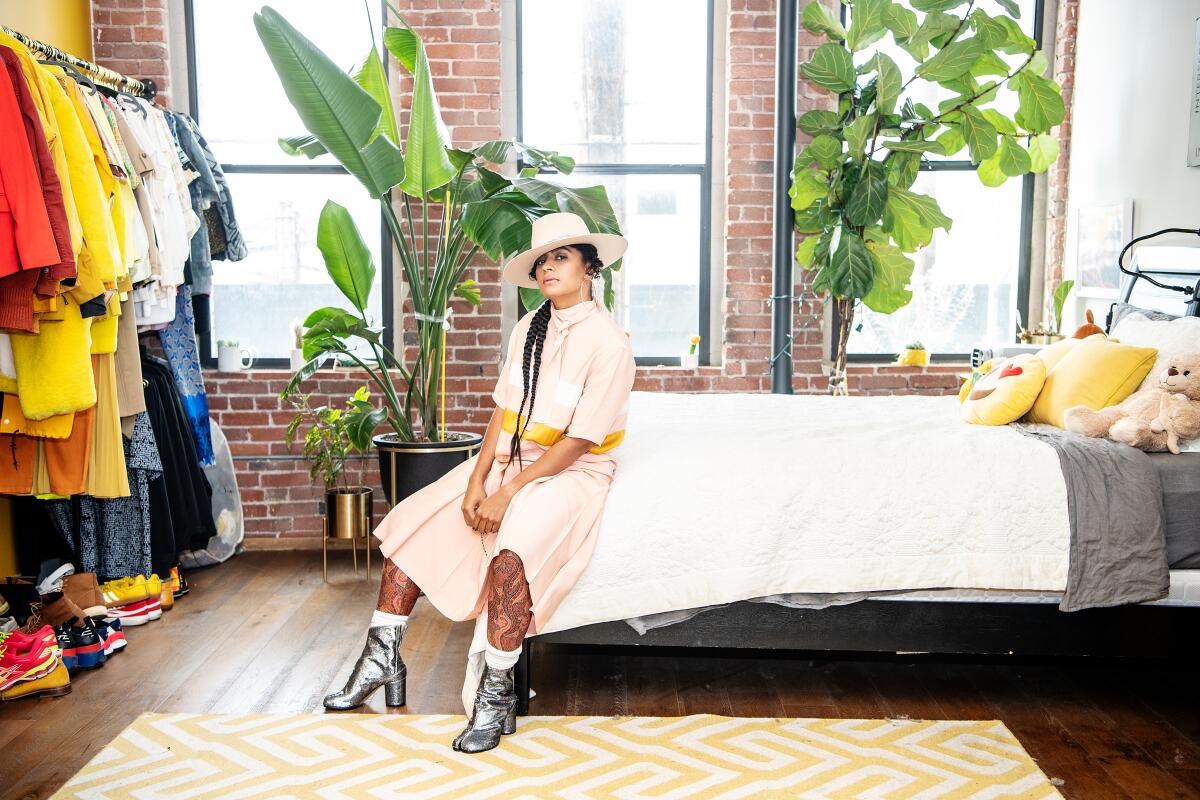
During her younger years in New York, Gandhi went to an all-girls school where she didn’t quite fit in, a fact that drove her to seek a creative outlet — and drumming was it. Her dad found her a drum teacher “in a dingy part of the city where musicians smoked outside,” she said. “My dad was in shock. It wasn’t wholesome. It was gritty. Yet he would still take me, although eventually they got me a drum set and got the drumming teacher to come to our apartment on the Upper East Side instead.” She started taking DJ lessons as well, and before long she was being booked to play at clubs, her hand stamped with an X to show she was under 21.
However, it wasn’t until she started playing with M.I.A. that Gandhi felt she had finally hit her stride.
Phoebe Tonkin, who’s also an environmental activist, just released pieces from Lesjour!, her L.A.-made loungewear line. Her collection is made from earth-friendly fabric that derives from wood pulp.
After graduating from Georgetown in 2011, she was working at Interscope Records in Los Angeles as a data analyst when M.I.A. came in for a meeting. Gandhi’s boss allowed her to sit in on the meeting, after which she said to one of the rapper’s reps — admittedly quite audaciously — “I think M.I.A. could use a drummer on tour. Maybe someone Indian and female and looks the part?” Gandhi sent a customized video to M.I.A.’s team in which she was playing one of the artist’s songs and mixing Indian drums with Western.
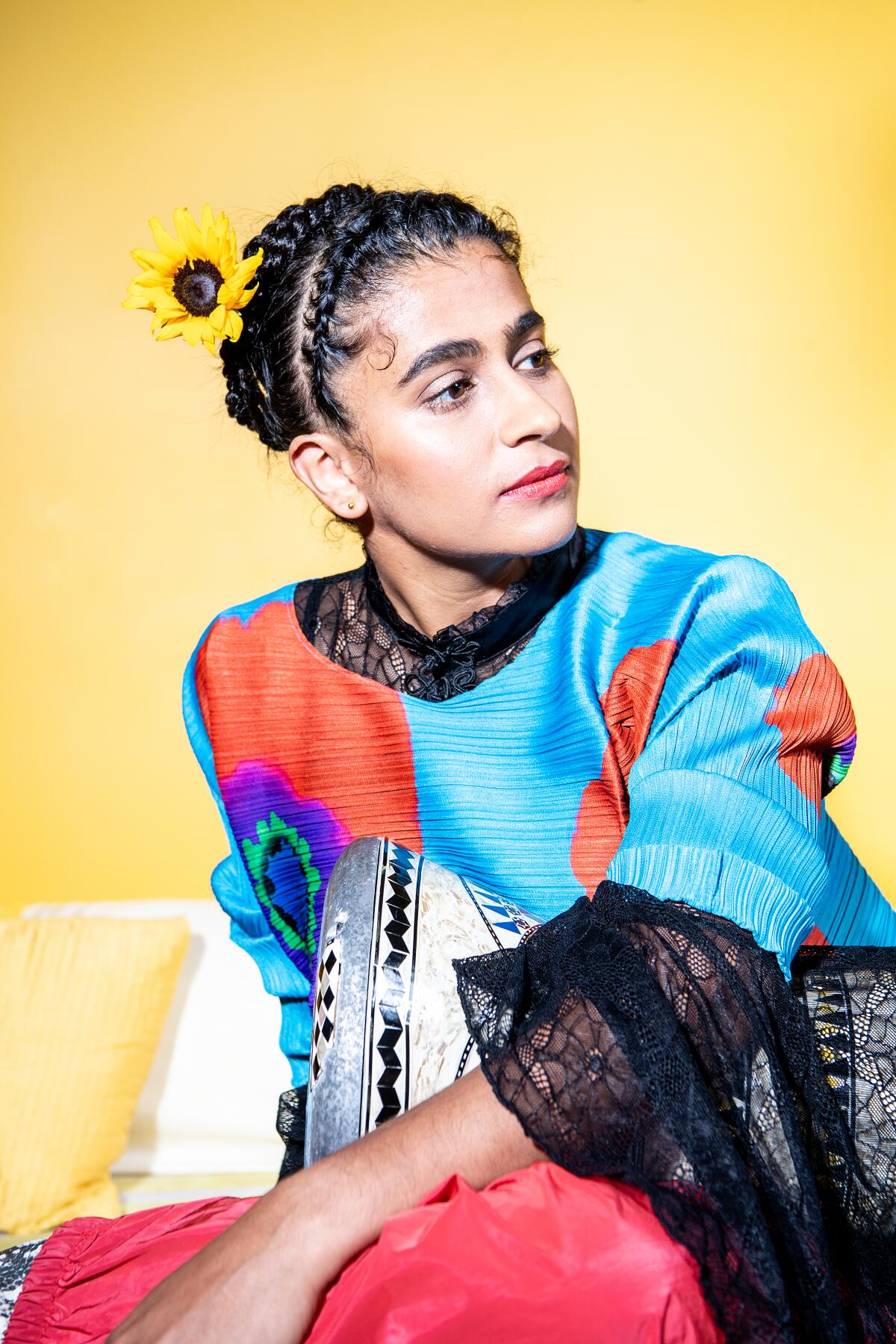
She was hired.
The touring lasted much of Gandhi’s first year at Harvard. As she was trying to figure out what to do to define the second year of her program, she ran a marathon in London in 2015, an event that she’s still known for. She was on the first day of her menstrual cycle and instead of dealing with sanitary napkins or tampons, she pulled on a pair of orange tights and ran 26 miles while “free bleeding.” It was an act that drew the attention of the world’s media — and cemented her reputation as a progressive feminist with an unapologetic voice.
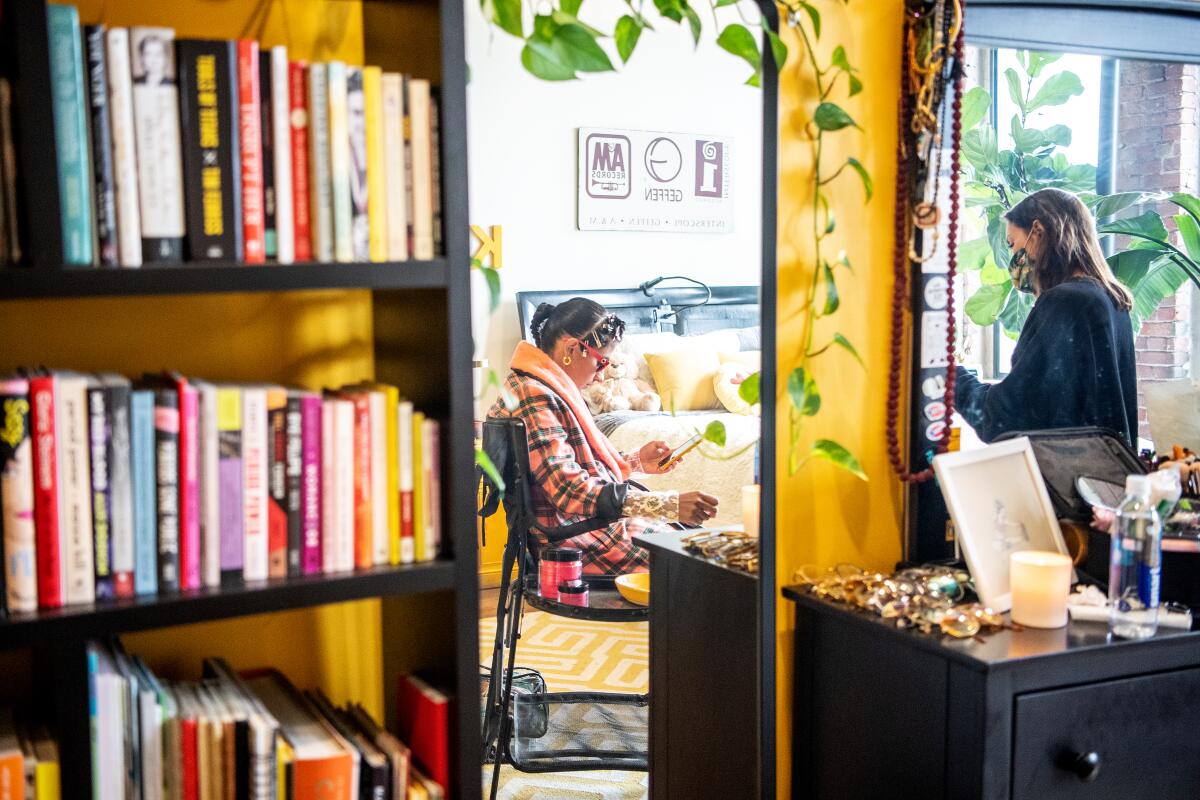
“I ran and I bled and I thought, ‘This is so badass and so empowering,’” she said. “Women bleed all over the world and we’re not rewarded and celebrated. And we’re expected to hide it away in shame. In some cultures, girls stay home from school. But how could they shame a marathon runner? There was something about the act of running a marathon. I knew there was power in that.”
In 2020, though, Gandhi is slowly peeking out from behind the shroud of quarantine, a time during which she began to feel anxious and isolated.
“I feel like my mental health took a plunge, that my sense of purpose didn’t exist anymore,” she said at a table at the Soho Warehouse outdoor cafe. “When I’m on a stage, I feel loved and connected. But then not having a stage I had to do a lot more work on myself so the moment could feel the same as when I’m performing.”
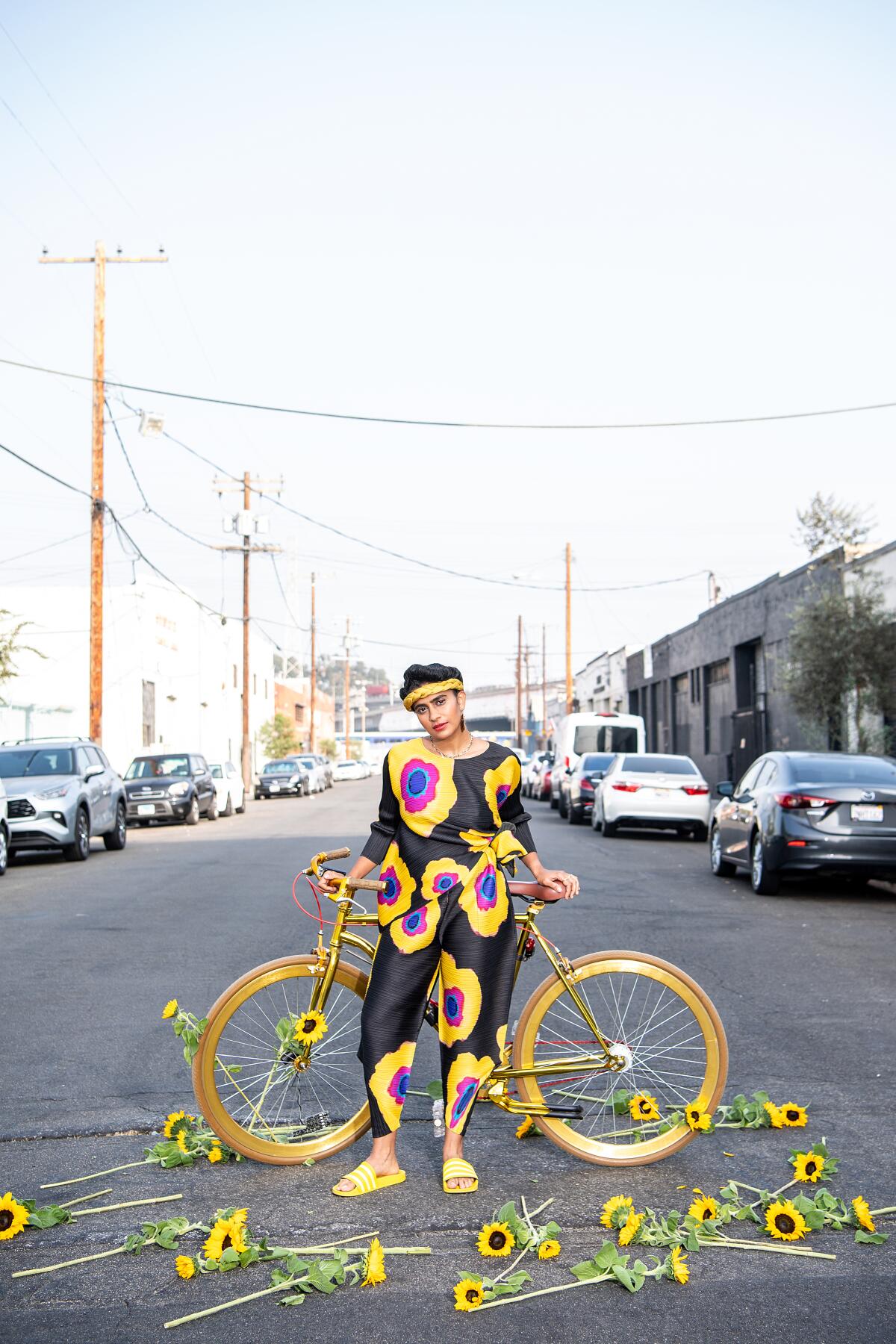
The shutdown months weren’t a complete wash. She went to New York, where she shot a campaign for fashion retailer Free People. She also filmed a Tiny Desk concert for NPR, completed a new TED Talk about creating sex-positive music and continued work on her new album, which will contain five songs.
“They are songs about wellness, joyfulness, being the best version of yourself,” Gandhi said of her upcoming album. “They are about what I believe in: vulnerability, being honest and speaking your truth.”
Sign up for The Wild
We’ll help you find the best places to hike, bike and run, as well as the perfect silent spots for meditation and yoga.
You may occasionally receive promotional content from the Los Angeles Times.